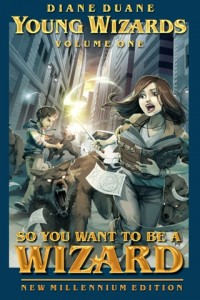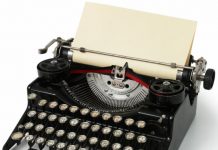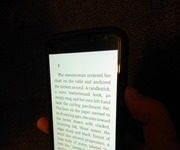 As part of my spend-less-money year, I have been trying to go through my backlog of unread books and prune a little more vigorously. I want to be able to buy new books guilt-free—when I want to read them. And that means I have to have time to read them by not having 500 unread buys sitting in my library, taunting me. So I have been clearing out the Kindle freebies, considering carefully which free classics I truly will read, deleting off the library wishlist and archiving some past buys I know I’ll never get to (the defunct Fictionwise was very bad for me in this regard, and I succumbed to many a bandwagon because I could get it for free with points!)
As part of my spend-less-money year, I have been trying to go through my backlog of unread books and prune a little more vigorously. I want to be able to buy new books guilt-free—when I want to read them. And that means I have to have time to read them by not having 500 unread buys sitting in my library, taunting me. So I have been clearing out the Kindle freebies, considering carefully which free classics I truly will read, deleting off the library wishlist and archiving some past buys I know I’ll never get to (the defunct Fictionwise was very bad for me in this regard, and I succumbed to many a bandwagon because I could get it for free with points!)
I am down to a manageable backlog, for the most part. I transferred anything which looked interesting to my Kindle and wound up with about 50 books on there. So, what’s left languishing in my Calibre library? Series books! If I count each series as one thing, my backlog is smaller than I thought it was. So, what to do with them—read, or archive? Here is what I have left. Any opinions?
1) The Discworld series. I had a text file of unknown provenance with ‘Mort’ by Terry Pratchett, which I read long ago on my first Palm device. I re-bought this from Kobo back in the day and enjoyed it a lot. Then I got the first one from the library and couldn’t get through it. I have a handful of other ones I got with a coupon code from Fictionwise ages ago, but I have been scared to go near them. I think I was turned off by my failure with the first book, and I worried that the footnotes would be a nightmare on e-form. But the Kindle handles footnotes so well! So should I give this series another try?
2) Agatha Christie books. This was another Fictionwise coupon code binge. I’ve read one or two and liked them—the Miss Marple ones—but some of the Poirot books seem a little plodding. Is Dame Christie worth another look?
3) Diane Duane’s Wizard series. I bought these all, DRM-free, off the author’s website during a coupon code sale and just never got to them. They seem like they might be my type of thing, but then I heard she released updated versions and I think I was a little disappointed I hadn’t waited for those. I keep looking at these and thinking I should read them, but I haven’t yet.
4) Patricia Ryan’s historical mysteries. I picked these up during my Year of Reading Smashwords Books, and have since spoken with Ms. Ryan—and interviewed her for Teleread several times—since. She is a lovely person, and an under-hyped activist for authors trying to reclaim their backlist books. But…well, I am not sure this is really my genre, and the fact that she’s a lovely person doesn’t really make them my genre. So I remain on the fence with these.
5) Complete Works collections. I really do plan to read the Dickens and Baum books, but am I really going to get to Trollope, Virginia Woolf, Mark Twain, Thomas Hardy, Wilkie Collins and other bought-for-a-song Delphi Classics collections? Complicating matters is their giant file sizes. If I want to convert my all-epub set of these for reading on the Kindle, I will have to split them first, so I am tempted to just pitch the whole set and download individual titles off Project Gutenberg or Mobile Read as I want them.
These five categories represent the bulk of my unread backlog. Are they worth another look?

































Pratchett, yes, you should read him. The first few are not as good as most of the later ones, which do vary in quality. There’s an order of reading website, that will tell you which series come in which order. Since you already liked Mort, you could start with that series; otherwise I would suggest either the Watch or the Witches.
Christie, I would say no. If you like mysteries, you’ll probably be able to find lots of more recent ones that are better written, both in terms of plot and in terms of character development.
I like Dickens and Trollope, but haven’t ever obsessed about reading all of them. I’d say downloading one from Project Gutenberg when you’re in the mood is the right answer. Hardy you definitely have to be in the mood.
I’ve never read Pratchett, but many of my SF buddies adore him.
Duanne is an excellent writer so, if you like kids’ books, she’s a definite yes.
As for Christie and the 19th century writers, I’d find lists which rate them in quality and popularity and read the top ones, first.
I’m a Christie fan, and, if you haven’t read it, try THE MURDER OF ROGER ACKROYD, one of the most controversial books she ever wrote. I can’t say why it’s controversial because it would ruin major plot points.
Discworld: I’d recommend giving them another shot. As another commenter noted, the quality does vary. If you enjoyed Mort, try Reaper Man next (I think that’s the next one in the Death group.) I didn’t especially like the Rincewind books myself, but most of the City Watch ones are quite fun. (Kindle Keyboard handles the footnotes fine – I’m not sure how the newer models do.)
Diane Duane’s Wizard series: Highly recommended unless you don’t want to read YA fiction. I think you should have clean versions if you purchased them from the author’s website (there were entirely too many uncorrected OCR-induced errors in the version I bought through the Kindle store a few years ago.) The updated versions didn’t change the stories, but they did place them all in the same era. (The originals happened in the present day when the were published, but the characters only age based on the passage of time within the story, so things don’t sync up so neatly timeline-wise.)
Agatha Christie: Read the rest of the Miss Marple books if you liked the ones you have read, skip the Poirot ones. I appreciate her contributions to the mystery genre, but she’s not someone I’d be likely to read for fun.
For Christie, her “And Then There Were None” is a good read too.
In the first couple of Discworld books, Pratchett was trying to write what he’d been told the market wanted, which was more of a straight humor series. After that, he found his own voice, and later books were better.
As for Agatha Christie, you might want to check out the “Tommy and Tuppence” books. I’ve read the first one and it really is fun.
As for the Young Wizards books, yes, those are great fun. As I mentioned before, I personally like the original versions slightly more in most cases, but that could be because I read them first. Anyway, they’re good enough you’ll want to read them again sooner or later. So you could read the original ones now, then buy the new ones later. Duane runs enough sales on her DRM-free e-book site that they’ll be cheap sooner or later.
Interesting opinions.
I’ve not read Pratchett so have no opinion.
I bought the Duane books on Chris’ exuberant recommendations. I do read YA, although it is just a sliver of what I read. However, unlike the others, I would say junk Duane. I tried reading a couple of the books I had bought and found them dull. I much prefer Kristen Britain’s Green Rider series, although her just released Mirror Sight was not very good.
If you like mysteries, Agatha Christie is a must read. Not all of her books, but a few so as to get a taste of the roots of the genre. (Probably the original must read in detective fiction is Edgar Allan Poe who is credited with creating the genre, followed by Arthur Conan Doyle, who has yet to be surpassed as master of the genre.)
@Richard, thanks for the Green Rider recommendation. I’ve been trying to decide whether to read those. I just downloaded a sample of the first one.
Over the years I have dabbled in Pratchett, a book here, a book there, always mildly amused but never enough to really pursue the whole Discworld thing.Then this spring I suddenly went on a binge and read the entire series–it seemed like with every one I read, I had to have more, more, more! I can’t say why this particular spring was the tipping point–obviously the books haven’t changed, but it was just the right time for me and Discworld. This is the lovely thing about e-books–if you pick them up through a deal, you can just hold on to them on your device until the time is right, and you don’t have to dust or buy new furniture and a larger apartment to accommodate them.
Pratchett: The first book is probably the weakest of the series. It relies on you having an extensive knowledge of fantasy so that you can enjoy recognising all the parodies. Do read the rest.
I think the Agatha Christie books are worth reading, but not in a batch. I bought the lot in what I expect was the same fictionwise sale. I’m reading them in publication order, and I’m a little over half-way through. It’ll take me a few more years to get to the end, which is a good thing.
Diane Duane: The updated books fix the timeline and technology, but aren’t major re-writes. In some ways the originals are better, you just have to ignore the changes that happened because the series-time of three or four years was written over 30 years. So You Want to be a Wizard is excellent. Deep Magic is even better, IMO.
I have accepted that I’m unlikely to read many of the classic works of the 19th century, and I’m OK with that. I do intend reading some of the ‘best’ ones, but not complete works.